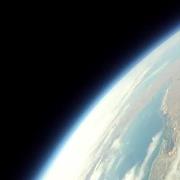11 January 2016
 The opportunity to hear astronauts talk about life in orbit, and the launch of a high altitude balloon to the edge of space, are among the highlights of this year’s Southern Hemisphere Space Studies Program (SH-SSP), which is being opened by the Minister for Education and Training, Senator the Hon Simon Birmingham, at the University of South Australia today (January 11).
The opportunity to hear astronauts talk about life in orbit, and the launch of a high altitude balloon to the edge of space, are among the highlights of this year’s Southern Hemisphere Space Studies Program (SH-SSP), which is being opened by the Minister for Education and Training, Senator the Hon Simon Birmingham, at the University of South Australia today (January 11).
The five week long program, hosted by UniSA in collaboration with the International Space University (ISU), is aimed at educating the next generation of space professionals, with 32 participants from 10 different countries due to learn about all aspects of international space activities – from satellite applications to human space exploration to space policy.
Minister Birmingham says the program provides students and researchers a broad understanding of the key activities and knowledge areas required by today’s space professions.
“The Southern Hemisphere Space Studies Program draws together students from around the world to the University of South Australia, which has uniquely been chosen as the International Space University’s partner in this international space education venture,” Minister Birmingham says.
“The skills and opportunities those participating in the program receive are a perfect example of the innovation agenda that is at the heart of the Turnbull Government’s vision for Australia’s future.
“Those students and researchers who take part in the Southern Hemisphere Space Studies Program will gain vital insight that will strengthen their career paths as Australia’s next generation of space professionals or leaders in science and innovation.”
For the wider community there will be four public events taking place as part of the program, including an International Astronaut Panel where attendants can discover what life is like in space from experts including Canadian Astronaut and medical specialist, Dr Bob Thirsk and former European Space Agency Astronaut and scientist, Dr Jean-Jacques Favier from France.
UniSA Bachelor of Engineering (Mechanical & Mechatronics) student Tristan Perkins describes participating in the program as a golden opportunity.
“I am hoping to gain an insight into the many intricacies and facets that go on within the space/aerospace industry both in Australia and abroad and I am particularly interested in the aspects involving space engineering, systems integration and how these aspects can impact/enhance the human spaceflight experience," Perkins says
“Attending this program is an opportunity like no other for a student in my situation, and the fact that it is at UniSA, is one that I could not pass.”
The launch of a stratospheric balloon to reach “near space”, 25km above Mount Barker in the Adelaide Hills (on January 26), will form part of the learning experience, as this year’s SH-SSP team project is to design, assemble, integrate and test a remote-sensing and communications payload suitable for high altitude ballooning.
John Connolly, most recently NASA’s Chief Exploration Scientist, has been given the responsibility of leading the International Space University’s SH-SSP. He says the stratospheric balloon launch represents the equivalent of a sub-orbital rocket launch, with its small satellite demonstrating the value and application of space science in regard to Earth bound priorities.
“The group research project or 'White Paper' that will be presented in the final week of the program this year will be on the topic of Food and Water Security and will consider how space technologies and space systems can be best utilised to improve the production, monitoring and availability of global food and water needs,” Connolly says.
“As a practical preparation for our White Paper group research project on Food and Water security, the stratospheric satellite project will allow the SH_SSP participants to gain hands-on experience of preparing and launching a payload, and performing the collection and analysis of visible and near infra-red images of local South Australian agricultural areas.”
For interviews: Michael Davis Program Co-Director mobile 0419 170251 Email mdavis@spacelaw.com.au
UniSA Media contact: Will Venn office (08) 8302 0096 email will.venn@unisa.edu.au
Minister Birmingham media contact: James Murphy 0478 333 974/ Nick Creevey 0447 664 957


